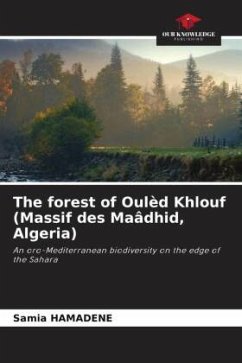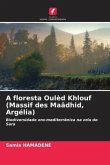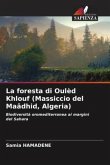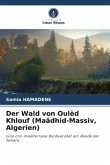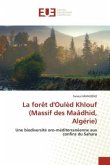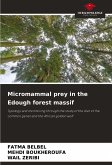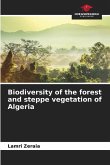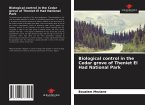Located at the Saharo-mediterranean borders, at a hundred of km as the crow flies from the Mediterranean sea and at about ten meters from the absolute limit of the Saharan phytogeographic region which penetrates in the Hodhna, The forest of Oulèd Khlouf (Bordj Bou Arreridj), rich in oro-Mediterranean ecosystems (barked grasslands, cedar, buxaceous, aceraceous, yeusera, pine, juniper) is home to plant genetic resources sensitive to climate change. These resources constitute an exceptional reserve of forest ecotypes: Atlas cedar (Cedrus atlantica (M. ex E.) C., 1855), Yeuse (Quercus ilex L., 1753), Boxwood (Buxus sempervirens L., 1753), Montpellier maple (Acer monspessulanum L., 1753), Alpine buckthorn (Rhamnus alpina L, 1753), Cotoneaster (Cotoneaster racemiflora Desf.), Hawthorn (Crataegus monogyna Jacq.), Barberry (Berberis hispanica B. & R.), Blackthorn (Prunus spinosa subsp fruticans, Nyman, 1878), Roses (Rosa montana Chaix, 1785 and Rosa sempervirens L., 1753), Arbutus unedo L., 1753) Because of its ecological context and its biodiversity, the forest constitutes a privileged observatory for the study of climate change processes.
Bitte wählen Sie Ihr Anliegen aus.
Rechnungen
Retourenschein anfordern
Bestellstatus
Storno

